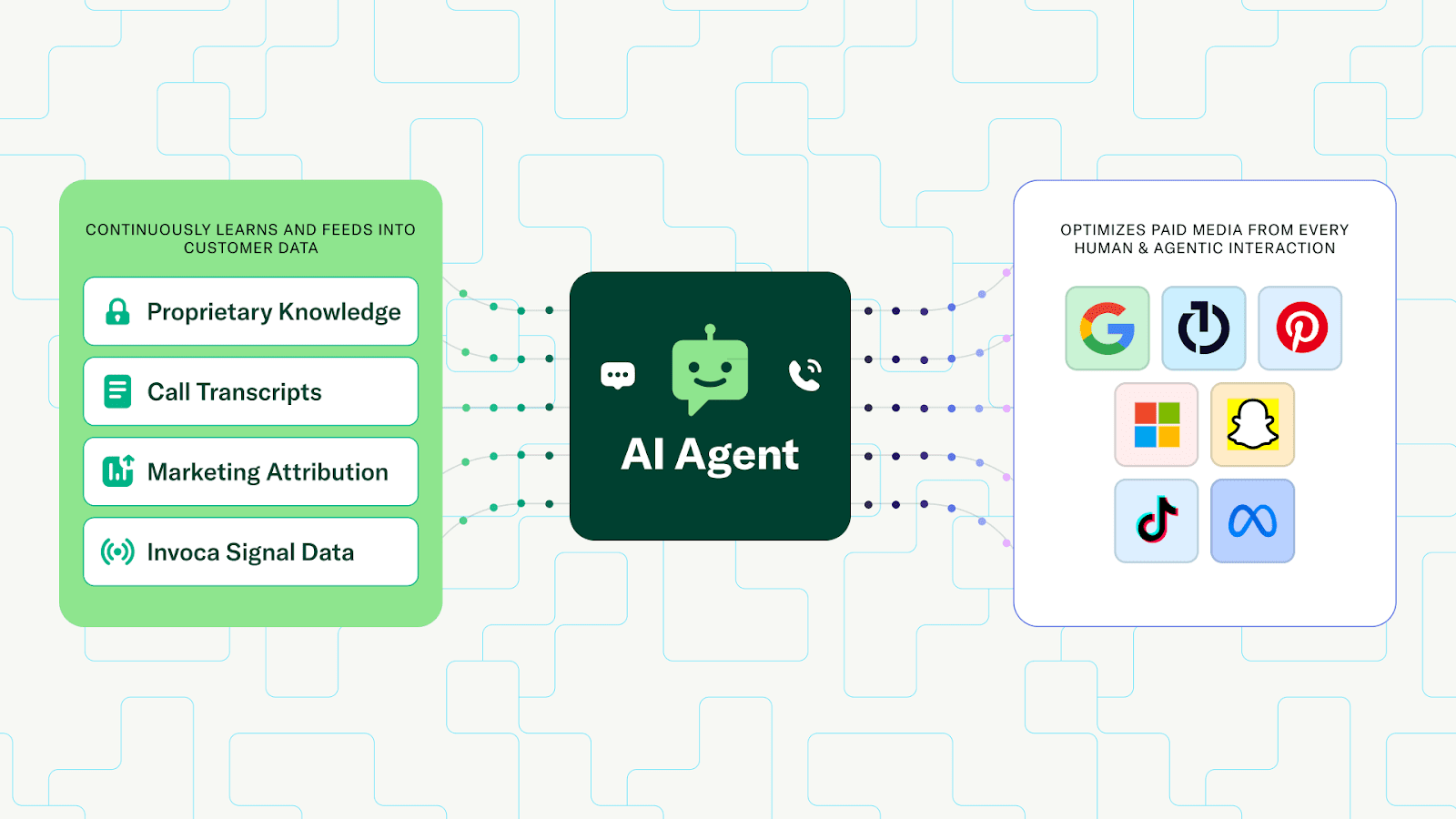In 2026, patient experience expectations have reached an all-time high. Today’s healthcare consumer not only wants convenience, but expects personalized, connected engagement across every touchpoint, from online research to phone calls to SMS to in-person visits. Research shows that nearly 90% of patients now expect healthcare personalization on par with retail experiences, and half would switch providers for a better digital experience.
This shift toward healthcare consumerism isn’t just a buzzword — it’s reshaping how patients choose providers, interact with care systems, and ultimately decide where they spend their time and money. To win in this environment, healthcare organizations must deliver omnichannel experiences that feel cohesive, timely, and tailored to each individual.
Central to that effort is understanding and optimizing every step of the patient journey, including the often-overlooked but critically important channel of phone calls. These conversations contain rich insights about patient intent and preference. When captured at scale, they power the personalized experiences patients demand. In addition, many of these platforms offer additional personalization tools, such as intelligent call routing and AI messaging agents.
In this post, we’ll explore how leading healthcare providers use conversation intelligence to meet rising patient expectations, deliver seamless omnichannel journeys, and drive new patient acquisition and retention.
Make It Easier for Patients to Engage on Their Preferred Channel
The first and most important step to personalize the patient journey is to let patients engage with your organization the way they prefer — not the way that’s most convenient for you. Some patients want to call to schedule appointments, some want handle it online, and others will jump between channels. It’s important not to view your channels in silos and to create a seamless experience regardless of the path your patients choose.
Oftentimes, healthcare providers will receive unnecessary calls because patients are having trouble scheduling an appointment online. This not only creates a poor experience for patients trying to convert online — it also drives unnecessary calls to your contact center or locations, increasing hold times.
Identify pages driving digital abandonment with conversation intelligence
To identify pages that are causing digital abandonment, healthcare providers use conversation intelligence to quickly identify “problem” pages that are causing patients to call when they’d rather schedule an appointment online. You can then tap into the phone conversations to fully understand the issues. Conversation intelligence solutions like Invoca automatically record and transcribe every phone conversation, so you can hear exactly what your patients are saying when they call you. With Invoca, you can also utilize global transcript searches to get a better idea of how often patients are saying certain terms or phrases.
Use AI to identify patient experience issues
Don’t want to sift through your transcriptions manually? No problem — you can use Invoca’s Signal AI to automatically detect certain words or phrases that you’ve deemed important. For example, you could set up a signal that identifies when patients ask questions about insurance coverage or when they mention an issue with your website. This will allow you to quickly address key issues on your webpages.
Sometimes, however, you may not know what words or phrases to look for. There may be issues impacting your patients that you haven’t detected yet. To identify topics and trends you may not have known to look for, you can use Invoca’s Signal Discovery. This feature uses unsupervised machine learning to discover macro and micro trends that are happening in your patients’ phone conversations. As a result, you can detect new patient issues and barriers to conversion at scale, without having to listen to call recordings to find them.

Correct experience issues with conversation intelligence insights
Below are some examples of how you can use the insights you uncovered with conversation intelligence to improve the patient journey:
- If you discovered a link was broken, you could correct that issue so future patients don’t get hit with a 404.
- If you learned that your insurance coverage page didn’t go into enough detail, you could add the FAQs your agents are answering over the phone to the page so that patients don’t need to call to get those details.
- If you discovered there was a field on your “schedule an appointment” form that patients were confused about, you could clarify the wording.
Correcting these issues makes it easier for patients to engage with you on their preferred channel. It also reduces unnecessary calls at your contact center and locations, lowering wait times and creating better experiences for everyone.
Personalize Call Routing to Instantly Connect Patients with the Best Agent or Location
One of the most frustrating parts of the patient journey is going through unnecessary transfers. According to Invoca’s Buyer Experience Benchmark Report, 79% of people say they’re rerouted at least once when they call a healthcare provider. This creates friction and makes people less likely to become patients.

To personalize the patient journey, healthcare providers are intelligently routing callers to a relevant agent right away — without making them endure transfers. They accomplish this by using conversation intelligence solutions like Invoca. With Invoca, you can identify which marketing channel, digital ad, search keyword, and website page drove each call. You can then use this digital intent data to automatically route the caller to the best agent or location to handle their inquiry. For example, calls driven by the insurance and billing page would be automatically routed to a billing support specialist. Calls driven by “schedule an appointment” search ads can be routed to the appropriate contact center agent or the practitioner that’s nearest to the caller’s geographic location.
Personalizing call routing will not only make your callers more likely to convert, it will also help you to minimize unnecessary transfers at your call center or locations. This will decrease the total amount of time each caller is engaged with your contact center, and reduce strain on your agents.
Give callers the option to self-route with easy-to-configure IVRs
If you want to give your callers the ability to self-route, Invoca also allows you to set up custom voice-activated IVRs. Unlike other solutions, Invoca’s cloud IVRs can be easily configured in minutes without any assistance from your IT team. This way, you can easily update your IVRs as patient needs change, as you add locations or services, and as your hours change.
How University Hospitals increased conversion rates 300% with personalized call routing
University Hospitals is one of the leading healthcare providers in the United States with more than 200 locations, 18hospitals, 55 health centers, and about 30,000 employees. It uses Invoca’s Salesforce Marketing Cloud integration to swap out the generic call center phone number from each email campaign with the phone number for the provider the patient most recently visited. So, rather than going to a call center handling hundreds of thousands of calls, the patient is immediately directed to their preferred provider. This has allowed patients to schedule appointments more quickly, cutting their total call duration by 50% and raising conversion rates by 300%.
Read the full University Hospitals case study here
Personalize Call Experiences With Digital Journey Data
With Invoca PreSense, you can show contact center agents why patients are calling with digital journey data in a screen pop that appears before the call begins. This reduces call handle times and enables agents to focus on providing an empathetic experience and setting appointments instead of gathering basic patient information.
It also enables healthcare providers to optimize call routing using digital intent signals ensuring customers are connected to the most suitable agent, office, or specialist based on their specific needs.
For instance, a caller who’s started searching online for a provider to perform a knee replacement can be routed to an office or contact center agent that handles orthopedic surgery. By getting patients to the right office or agent faster, you can reduce call transfers and abandonment, drive higher appointment rates, and boost patient satisfaction across the board.
Healthcare businesses that utilize contact centers can also connect PreSense with Five9, NICE inContact, Genesys, Salesforce, Amazon Connect, and others.
Reengage Missed Opportunities with AI SMS Agents
When a prospective patient calls after hours or during a peak-volume surge and reaches a voicemail or a long hold queue, they're likely to hang up and call a competitor. By deploying Invoca’s AI Messaging Agents, you create a 24/7 safety net that captures intent the moment a call can’t be answered. Rather than a "we'll call you back" promise that often goes unfulfilled, these agents can step in via text to handle high-intent tasks like booking, rescheduling, or answering basic FAQ.

What sets these agents apart from traditional chatbots is the level of personalization they deliver. They’re trained on your highest-performing human calls, so every interaction sounds like your best staff member—not a script. Because the AI is also informed by the patient’s digital journey, it already understands the service they were researching, the location they intended to contact, and the context behind their call. The result is a conversation that feels continuous and tailored, turning missed opportunities into booked appointments.
Deliver Empathy at Scale with Personalized Follow Ups and Future Targeting
Once a patient has engaged with your healthcare organization, you need to ensure that you’re tailoring their follow ups and future targeting accordingly. Otherwise, their interactions with your brand will feel disjointed and inauthentic. This could lead to lower appointment conversion rates and increased patient churn.
To personalize future experiences and deliver empathy at scale, leading healthcare providers use conversation intelligence. The solution captures data from every phone call, such as the phone number, caller name, geographic location, and marketing source that drove them. It also captures insights from the conversation, such as the caller’s healthcare needs and what stage of the journey they’re at. You can then unify this data with your existing technology platforms, such as Salesforce, to build more detailed profiles about your patients.
When you enhance your patient profiles with conversation intelligence data, you can deliver more personalized messaging at scale. For example, you can ensure that each patient receives email campaigns that are relevant to the healthcare needs they voiced over the phone and the geographic location they called from. Or, if they already called to book a treatment, you could exclude them from seeing future search ads about it, to avoid wasting spend.
In the video below, Chris Pace, Chief Digital Marketing Officer at Banner Health shares how his organization uses Invoca to personalize patient experiences and deliver empathy at scale.
Want to learn more about how Invoca can help you improve the patient journey? Check out these resources:

